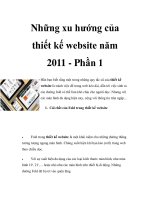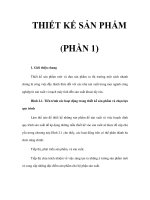LEADERSHIP STRATEGIES FOR PERSONAL SUCCESS phần 1 potx
Bạn đang xem bản rút gọn của tài liệu. Xem và tải ngay bản đầy đủ của tài liệu tại đây (38.05 KB, 16 trang )
NFA-SM-LS (2)
January 1994
STUDENT MANUAL
LEADERSHIP:
STRATEGIES FOR
PERSONAL SUCCESS
• MANAGING MULTIPLE
ROLES FOR THE COMPANY
OFFICER
• CREATIVITY
• ENHANCING YOUR PERSONAL
POWER BASE
• ETHICS
FEDERAL EMERGENCY MANAGEMENT AGENCY
UNITED STATES FIRE ADMINISTRATION
NATIONAL FIRE ACADEMY
STUDENT MANUAL
LEADERSHIP:
STRATEGIES FOR
PERSONAL SUCCESS
• MANAGING MULTIPLE
ROLES FOR THE COMPANY
OFFICER
• CREATIVITY
• ENHANCING YOUR PERSONAL
POWER BASE
• ETHICS
LEADERSHIP
NOTICE:
This material has been developed by the National Fire Academy (NFA) of
the United States Fire Administration (USFA) for use by state and
metropolitan fire training programs. NFA endorsement of this material is
conditional on use without modification. NFA material, whether printed
text or software, may not be used in any manner that would mislead or that
would suggest or imply endorsement by NFA of any commercial product,
process, or service.
ii
LEADERSHIP
FEDERAL EMERGENCY MANAGEMENT AGENCY
UNITED STATES FIRE ADMINISTRATION
NATIONAL FIRE ACADEMY
FOREWORD
The Federal Emergency Management Agency (FEMA) was established in 1979.
FEMA's mission is to focus federal effort on preparedness for, mitigation of,
response to, and recovery from emergencies encompassing the full range of
natural and manmade disasters.
FEMA's National Emergency Training Center (NETC) in Emmitsburg, Maryland
includes the United States Fire Administration (USFA), its National Fire
Academy (NFA), and the Emergency Management Institute (EMI).
To achieve the Academy's legislated mandate (under Public Law 93-498,
October 29, 1974) "to advance the professional development of fire service
personnel and of other persons engaged in fire prevention and control
activities," the Field Programs Division has developed an effective program
linkage with established fire training systems which exist at the state and local
levels. It is the responsibility of this division to support and strengthen these
delivery systems. Academy field courses have been sponsored by the
respective state fire training systems in every state.
Designed to meet the needs of the company officer, this course of Leadership
provides the participant with basic skills and tools needed to perform effectively
as a leader in the fire service environment. This course addresses techniques
and approaches to problem-solving, identifying and assessing the needs of the
officer's company subordinates, running meetings effectively in the fire service
environment, and decision-making for the company officer.
iii
LEADERSHIP
iv
LEADERSHIP
TABLE OF CONTENTS
PAGE
Foreword iii
Table of Contents v
Course Schedule vii
MANAGING MULTIPLE ROLES FOR THE
COMPANY OFFICER
SM MR-1
CREATIVITY SM CR-1
ENHANCING YOUR PERSONAL POWER BASE SM PP-1
ETHICS SM ET-1
v
LEADERSHIP
vi
LEADERSHIP
COURSE SCHEDULE
MODULE
Managing Multiple Roles For The Company Officer
Creativity
Enhancing Your Personal Power Base
Ethics
vii
LEADERSHIP
MANAGING MULTIPLE ROLES FOR
THE COMPANY OFFICER
OBJECTIVES
The participants will:
1. Identify typical multiple roles and responsibilities of a CO.
2. Prepare a personal role-set analysis.
3. Identify four levels of accountability.
4. Identify possible sources of role conflict for the CO.
5. Develop and apply a balancing strategy for resolving role conflicts.
6. Recognize the importance of the CO serving as a role model for his/her subordinates.
MANAGING MULTIPLE ROLES FOR THE COMPANY OFFICER
SM MR-3
MANAGING MULTIPLE ROLES FOR THE COMPANY OFFICER
I. IDENTIFYING AND PRIORITIZING MULTIPLE ROLES
A. Definition: A role is a set of expected behaviors that characterize
your part in a particular situation; a function or office assumed by
an individual.
B. Each of us plays multiple roles in our day-to-day lives.
C. Roles can be formal (station commander, father) or informal
(mentor, friend).
D. Role-set analysis a process in which an individual attempts to:
1. Identify all roles.
2. Prioritize roles.
3. Define role expectations.
4. Identify conflicts.
5. Develop balancing strategies.
E. Benefits of role-set analysis.
1. Value clarification.
2. Understand others.
3. Time management.
4. Fairness to others.
5. Improved performance.
SM MR-4
MANAGING MULTIPLE ROLES FOR THE COMPANY OFFICER
YOUR ROLE-SET ANALYSIS
ME
SM MR-5
MANAGING MULTIPLE ROLES FOR THE COMPANY OFFICER
ACTIVITY 1
PERSONAL ROLE-SET ANALYSIS
IDENTIFYING AND PRIORITIZING ROLES
Step 1: List all the roles you presently play in your day-to-day activities.
Step 2: Prioritize the roles according to how important they are to you. (Do
not confuse the amount of time you devote to a role with its
importance to you.)
Place each role in the appropriate circle on the Role-Set Analysis
Form provided on previous page. (Roles which are most important go
in the circle closest to "me"; roles which are least important go in the
circle farthest away, etc.)
SM MR-6
MANAGING MULTIPLE ROLES FOR THE COMPANY OFFICER
Example:
HYPOTHETICAL ROLE-SET ANALYSIS OF A FIRE CHIEF
ME
Writer
Fire Science
Board Member
Son or Daughter
Church
Member
Spouse
Parent
Fire
Chief
Subordinate of
City Manager
Homeowner
Civic Board Member
Instructor
Student
Golfer
Consultant
SM MR-7
MANAGING MULTIPLE ROLES FOR THE COMPANY OFFICER
II. ROLE EXPECTATIONS
A. Definition: How you are expected to act in any specific role.
B. Sources of role expectations.
1. Key senders.
2. Yourself.
C. Role ambiguity when you're not sure what's expected of you in
any role. This causes:
1. Stress.
2. Confusion.
3. Feelings of inadequacy.
4. Lack of direction.
D. Tools for avoiding role ambiguity.
1. Job description.
2. Performance standards.
3. SOPs
4. Effective communication.
SM MR-8









